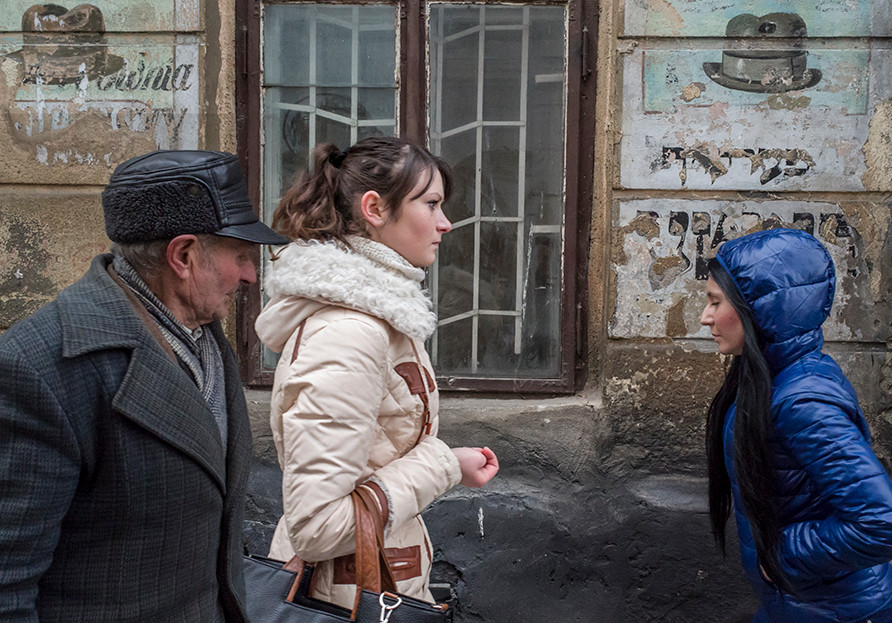In Ashkenazi heartland, struggle over ruins
Walking through Lviv, a Ukrainian city near the Polish border whose Jewish population is a small fraction of what it once was, it’s not uncommon to spot faded Hebrew letters on the outside of shops. Scattered through town are plaques commemorating vanished sites of Jewish heritage. Graffiti swastikas here and there tell of an age-old hatred etched into cultural memory.
But perhaps the most emblematic symbol of the city’s forgotten Jewish past is the Golden Rose synagogue. In 1941, during the systematic destruction of Lviv’s Jewish population by the occupying Nazi army, it somehow escaped total obliteration.
Now, the ruins sit in a rapidly gentrifying portion of the downtown area, which is on the UNESCO World Heritage List. A flagstone prayer hall once covered by a vaulted dome is now open to the elements and choked with weeds; only the facility’s western wall stands.
Nearly 80 years after the 16th-century synagogue was plundered and brought down with explosives, a battle over its masonry remains is now being fought in the Ukrainian courts and within the local Jewish community.
In July, the city announced in a press release that it would be moving forward with a project dubbed the “Space of Synagogues,” aimed at “raising awareness about the tragedy of the Holocaust, visualizing the common past, and creating new memorial and educational spaces in the city.” Scaffolding went up and a press conference on the site scored a visit from Lviv Mayor Andriy Sadovyi, a rising star in Ukrainian politics.
But the fanfare has so far failed to drown out the vehement protest and legal opposition of one local Jewish activist, who has almost singlehandedly managed to block the project for years.
Standing more than six feet tall in Hasidic garb and sporting a long white beard, Meylakh Sheykhet appears to be a character taken straight out of the region’s past. His official title is the Ukraine director for the Washington, DC-based Union of Councils for Jews in the Former Soviet Union, a non-governmental organization that seeks to protect human rights in Eastern bloc countries.

 51.0°,
Overcast
51.0°,
Overcast 




